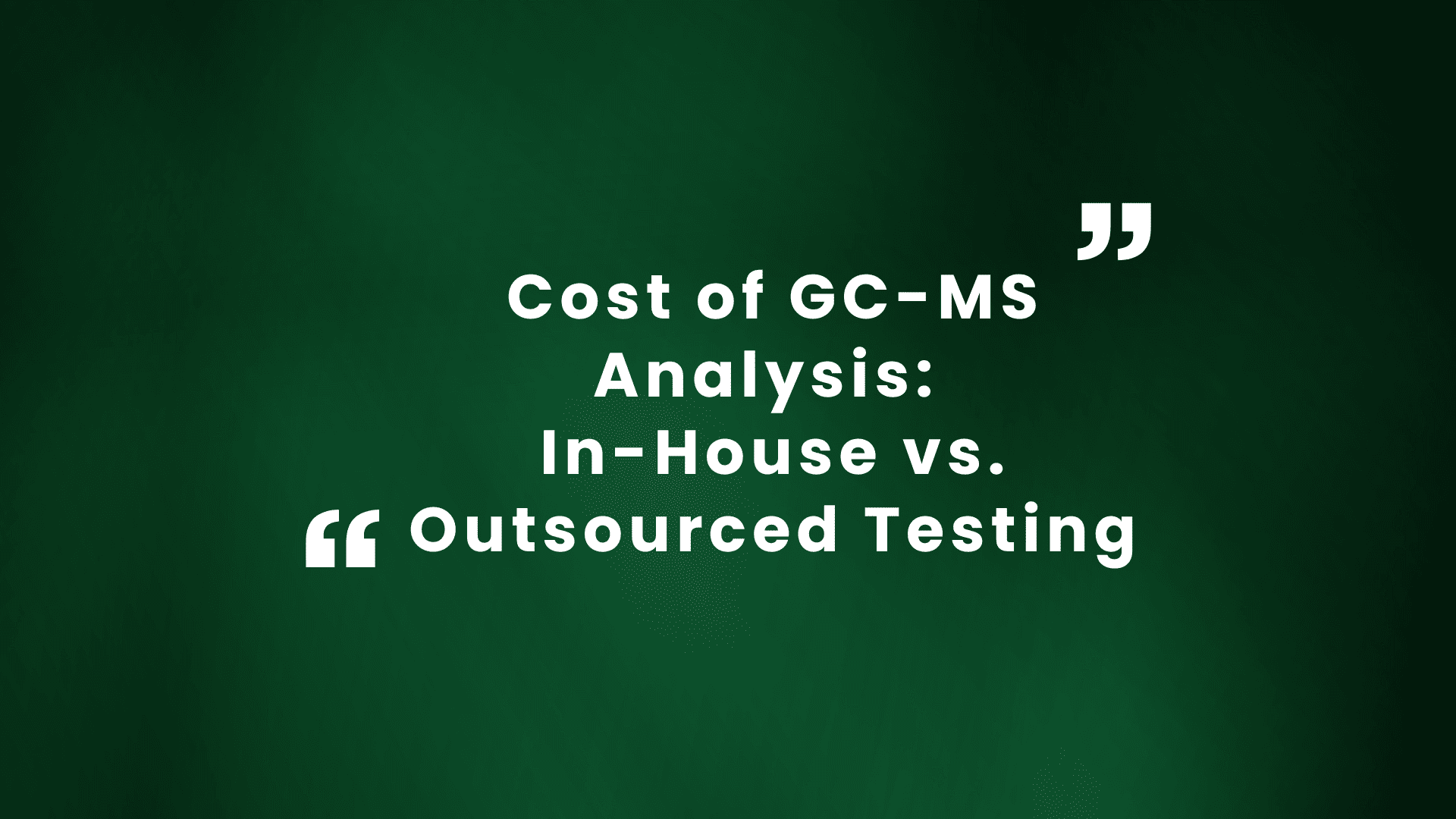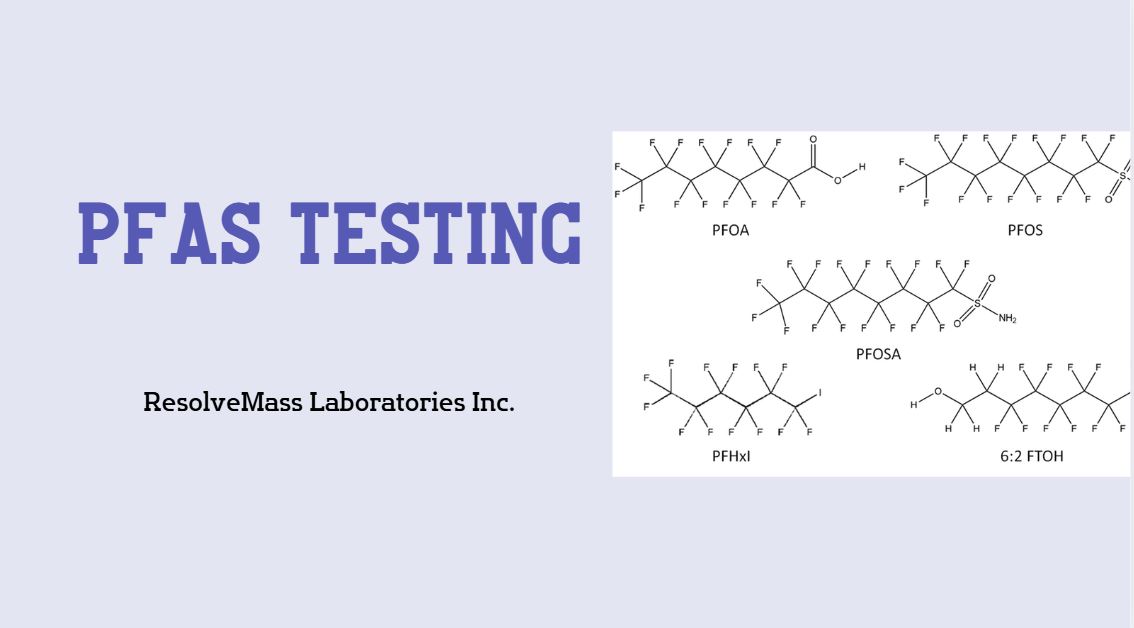Gas Chromatography–Mass Spectrometry (GC-MS) is one of the most important tools in modern analytical chemistry, with applications in pharmaceuticals, biotechnology, environmental science, and food safety. When organizations consider the Cost of GC-MS Analysis, they often face a key question: should they build an in-house laboratory or outsource testing to specialized providers like ResolveMass Laboratories Inc.? This article examines both options in detail, focusing on expenses, advantages, and real-world factors that guide this decision. The right choice usually depends on testing volumes, compliance needs, and the availability of skilled technical staff within the company.
Quick Summary: Cost of GC-MS Analysis – In-House vs. Outsourced
Setting up an in-house GC-MS facility involves large upfront costs, including equipment, infrastructure, and trained personnel, along with long-term maintenance expenses.
Outsourced GC-MS testing provides access to expert services at lower cost, with faster turnaround times and no need for capital investment.
Key factors influencing the Cost of GC-MS Analysis include sample type, method development, validation needs, and testing frequency.
Outsourcing ensures compliance with regulatory standards, flexibility to scale, and expert interpretation of complex results.
For smaller organizations or those with irregular sample needs, outsourcing often proves to be the most practical and cost-efficient approach.
ResolveMass Laboratories specializes in tailored GC-MS analysis services for pharmaceutical, industrial, and environmental testing, providing clients with both accuracy and affordability.
Cost of GC-MS Analysis : Video Explanation
What is the Cost of GC-MS Analysis?
The overall price of GC-MS testing depends on whether the work is done in-house or outsourced. On average, routine GC-MS tests range between $150 and $800 per sample, depending on sample complexity, regulatory standards, and reporting requirements. However, these figures only tell part of the story. The total cost also includes hidden factors such as staff training, method development, instrument calibration, and ongoing compliance audits.
ResolveMass Laboratories provides industry-specific pricing models for services such as pharmaceutical impurity profiling and residual solvent testing. Their approach ensures clients pay only for what they need, with transparent pricing and compliance-ready reports that prevent unexpected costs later on.
In-House GC-MS Analysis: Costs & Challenges
Building an internal GC-MS facility is a long-term commitment that requires substantial financial resources and technical expertise. Companies must plan carefully to manage both upfront and ongoing costs.
1. Upfront Investment Costs
- GC-MS instruments typically cost between $100,000 and $500,000 per unit
- Additional equipment such as gas supplies, calibration kits, and certified standards
- Infrastructure upgrades, including laboratory space, HVAC systems, and safety compliance measures
These initial investments are significant, and many organizations underestimate the additional expenses required for installation, validation, and training.
2. Ongoing Costs
- Salaries for skilled chemists, analysts, and laboratory technicians
- Annual service contracts, spare parts, and consumables like columns and carrier gases
- Internal audits, quality management upkeep, and regulatory inspections
Over time, these recurring expenses can even exceed the initial equipment purchase, especially if testing volumes are not consistently high.
3. Limitations of In-House Testing
Running an in-house lab comes with its own challenges. Method validation and documentation can be time-consuming, while equipment downtime or staff shortages may cause unexpected delays. In addition, internal setups often lack the flexibility to handle diverse project needs without further investment.
For this reason, in-house GC-MS testing is most cost-effective only for large-scale companies, such as major pharmaceutical or petrochemical firms. For smaller businesses, the costs often outweigh the benefits.
Outsourced GC-MS Analysis: Cost Benefits & Value
Outsourcing GC-MS testing to a trusted partner like ResolveMass Laboratories Inc. helps organizations avoid capital investment while gaining immediate access to expert resources and advanced technology.
Key Benefits of Outsourcing
- Lower Per-Sample Costs – No equipment, staff, or maintenance overheads
- Faster Turnaround Times – Accredited labs often deliver results in just days
- Regulatory Compliance – Compliance with FDA, EMA, and ICH guidelines is ensured
- Advanced Expertise – Access to specialized techniques such as nitrosamine testing and biomarker analysis
This approach allows businesses to focus on their core activities while ensuring high-quality analytical data.
Typical Outsourced GC-MS Costs
- Routine testing: $150–$300 per sample
- Specialized analysis: $400–$800 per sample
- Method development: custom quotes based on project requirements
For companies without constant sample loads, outsourcing is usually the most practical choice, providing flexibility and cost savings without long-term commitments.
Comparative Table: In-House vs. Outsourced GC-MS
| Factor | In-House GC-MS | Outsourced GC-MS |
|---|---|---|
| Upfront Costs | $200K–$1M (equipment + facilities) | None |
| Per-Sample Cost | Lower only with very high volumes | $150–$800 |
| Expertise | Requires hiring and training staff | Provided by accredited labs |
| Scalability | Limited by internal resources | Highly scalable on demand |
| Compliance | Managed internally at high cost | Assured by lab systems |
| Turnaround Time | Variable, may be delayed | Faster, often within days |
This comparison makes it clear why many organizations, especially outside large-scale manufacturing, prefer outsourcing.
Key Factors Affecting the Cost of GC-MS Analysis
Several factors influence the Cost of GC-MS Analysis, and understanding them helps businesses make better financial decisions:
- Sample Type – Complexity varies across pharmaceutical, environmental, food, and industrial samples
- Method Complexity – Simple residual solvent tests cost less than peptide sequencing or deformulation studies
- Regulatory Needs – GxP-compliant testing adds validation steps and costs
- Turnaround Time – Rush orders usually require additional fees
- Sample Volume – Larger volumes lower the per-sample cost
For instance, deformulation analysis or peptide characterization require more sophisticated workflows than routine residual solvent testing.
Why Choose ResolveMass for Outsourced GC-MS Analysis?
ResolveMass Laboratories has proven expertise in GC-MS testing for a wide range of industries. Their specialized services include:
- Impurity profiling for pharmaceutical safety and quality control
- PFAS testing for environmental compliance
- Rapid biomolecule testing with direct infusion methods
- Peptide sequencing for biotech and advanced research
All projects are carried out under strict quality systems to ensure accurate, reproducible, and compliant results. Clients benefit from transparent pricing, reliable turnaround times, and expert customer support.
Conclusion
The Cost of GC-MS Analysis depends largely on whether testing is conducted in-house or outsourced. While building an in-house facility makes sense for large-scale operations with continuous demand, outsourcing to trusted partners like ResolveMass Laboratories offers cost efficiency, regulatory compliance, and access to advanced expertise. For most organizations, outsourcing strikes the right balance between affordability, reliability, and scalability.
📌 Contact with ResolveMass Laboratories today to start your project.
FAQs: Cost of GC-MS Analysis
The cost of GC-MS testing usually ranges between $150 and $800 per sample. The final price depends on factors like how complex the sample is, the type of testing required, and whether regulatory-compliant documentation is needed. Specialized studies often fall at the higher end of this range.
In-house testing can be cost-effective only if an organization processes large volumes of samples consistently. For smaller businesses or those with irregular testing needs, the ongoing expenses of staff, maintenance, and validation often make outsourcing the more affordable option.
Method development and validation add to the total project cost because they involve designing, testing, and confirming new analytical procedures. While this process requires additional time and budget, it ensures data accuracy, reproducibility, and acceptance by regulatory bodies.
Many organizations overlook the hidden costs of in-house labs. These include staff training, equipment downtime, consumables, regulatory audits, and system validation. When combined, these expenses can significantly exceed the initial equipment investment.
Yes, outsourcing to accredited laboratories ensures compliance with international standards such as FDA, EMA, ICH, and ISO. These labs follow strict quality protocols, giving organizations confidence that their results are both reliable and audit-ready.
The risks of outsourcing are minimal when working with reputable, accredited laboratories. Strict confidentiality agreements, combined with established quality systems, ensure that sensitive project data remains secure while delivering accurate and reliable results.
References
- Jansi Rani, S., Rajalakshmi, P., Prathap, B., Malathi, S., Mathivanan, M., Ramalingasamy, N., Ranjith Kumar, E., & Sowmiya, C. (2022). Gas chromatography-Mass spectrometry-A Review. International Journal of Pharmacy and Analytical Research, 10(4), 388–405. https://doi.org/10.61096/ijpar.v10.iss4.2021.388-405 (ijpar.com)
- Moramreddy, L. H. B., Parameswari, S. A., & Gopinath, C. (2013). A review on GC-MS and method development and validation. International Journal of Pharmaceutical Quality Assurance, 4(3), 42-51. Retrieved from https://impactfactor.org/PDF/IJPQA/4/IJPQA,Vol4,Issue3,Article3.pdf
- Upadhyay, R., Patel, K., & Upadhyay, U. (2023). A review article on advancements in GC-MS. International Journal of Pharmaceutical Research and Applications, 8(2), 54-59. https://doi.org/10.35629/7781-08025459
- Sánchez-Guijo, A., Hartmann, M. F., & Wudy, S. A. (2013). Introduction to gas chromatography-mass spectrometry. In Methods in Molecular Biology (Vol. 1065, pp. 27–44). https://doi.org/10.1007/978-1-62703-616-0_3 (pubmed.ncbi.nlm.nih.gov)


